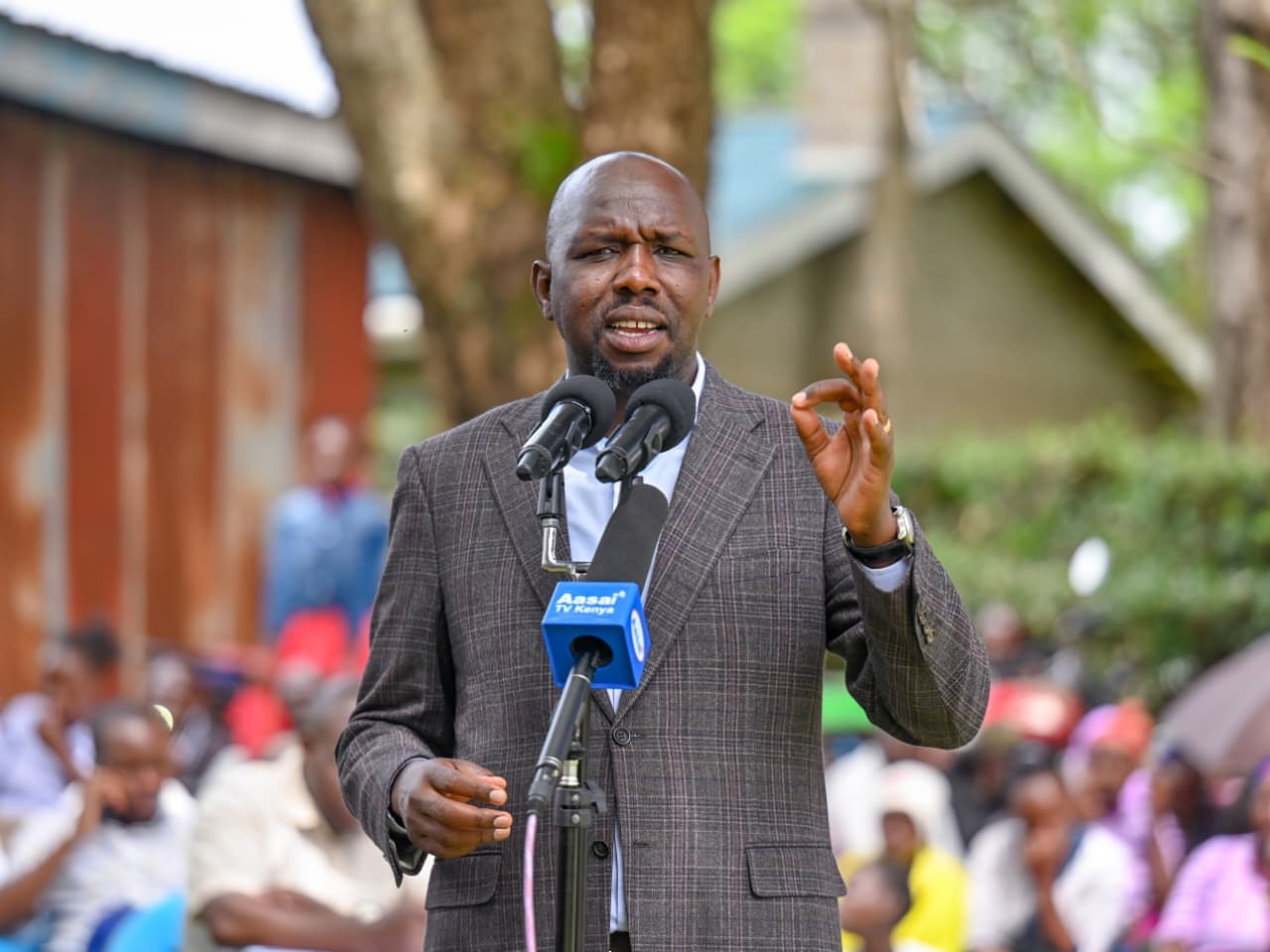We're loading the full news article for you. This includes the article content, images, author information, and related articles.
Interior Cabinet Secretary calls for citizen vigilance using mobile phones to document corruption ahead of the November 17th nationwide police recruitment, a process historically plagued by graft.

NAIROBI, KENYA – Interior Cabinet Secretary Kipchumba Murkomen has issued a stern warning against corruption in the upcoming National Police Service (NPS) recruitment, urging Kenyan citizens to use their mobile phones to record and report any instances of bribery. The nationwide exercise, scheduled for Monday, November 17, 2025, aims to enlist new police constables across all sub-counties and is a critical test of the government's commitment to transparency and accountability within the security sector.
Speaking at a church service in Bomet County on Sunday, November 9, 2025, CS Murkomen stated that both bribe-givers and takers would face arrest. “We want you, as local Kenyan communities, to come out as observers. We want your support for those who will be bribing, to record them and bring them to us, so that we can sort out this thing of corruption,” he said. He further directed that the recruitment exercise must conclude by 5:00 PM EAT in all centers, with the names of successful candidates announced immediately to ensure transparency.
Murkomen's call for public surveillance comes against a backdrop of deep-seated public mistrust in the police recruitment process, which has historically been marred by allegations of widespread corruption. Numerous reports from both the Ethics and Anti-Corruption Commission (EACC) and Transparency International (TI) have consistently ranked the National Police Service as one of the most corrupt institutions in the country. A July 2025 report by TI-Kenya revealed that the police topped the bribery index, with nearly 40% of all reported bribes in the country being paid to police officers. The survey indicated that for every ten Kenyans who interacted with the police, at least five paid a bribe.
Past recruitment drives have been nullified by the courts due to such malpractices. In October 2014, the High Court cancelled the recruitment of over 10,000 police constables, citing illegalities and a failure by the NPSC to adhere to the constitution. Similarly, recruitment exercises have been cancelled in specific centers due to irregularities, and anti-corruption bodies have previously gathered evidence of candidates paying significant sums, sometimes between KSh 40,000 and KSh 70,000, to secure a place.
The National Police Service, under Inspector General Douglas Kanja, has affirmed that the recruitment process is officially free of charge. To be eligible, applicants must be Kenyan citizens aged between 18 and 28, with a minimum KCSE grade of D+ (including a D+ in English or Kiswahili), and meet specific physical and medical fitness standards. Application forms are available for download from official government websites and can be collected from Huduma Centres.
The government has established official channels for reporting corruption, including hotlines for the EACC and the DCI's #FichuaKwaDCI service. Engaging in bribery to influence the recruitment process is a criminal offense under the Bribery Act of 2016, carrying a penalty of up to KSh 5 million, a prison term of up to ten years, or both.
While CS Murkomen's call to record officials is a powerful statement, it operates in a complex legal environment. The Kenyan Constitution, under Article 31, guarantees the right to privacy. However, this right is not absolute. Former Inspector-General of Police Hillary Mutyambai acknowledged in November 2021 that the public can record officers on duty, provided it is not done with malice or with the intent to interfere with their duties. Courts have also shown a willingness to admit secretly recorded evidence if its relevance to a case outweighs privacy concerns, as stipulated under Article 50(4) of the Constitution. Legal experts advise that recordings made by an active participant in a conversation, especially for the purpose of documenting a crime like a bribery demand, are more likely to be deemed admissible.
The integrity of the upcoming police recruitment is paramount for Kenya's security and its fight against corruption. A transparent, merit-based process is the first step toward building a professional police service that can earn public trust. CS Murkomen's directive places a significant responsibility on citizens to act as watchdogs, empowering them to hold officials accountable. However, the success of this approach will depend on the government's capacity to protect whistleblowers and act decisively on the evidence provided. The exercise on November 17th will therefore not only select the next generation of police officers but also serve as a crucial barometer of Kenya's resolve to reform one of its most vital public institutions.
Keep the conversation in one place—threads here stay linked to the story and in the forums.
Sign in to start a discussion
Start a conversation about this story and keep it linked here.
Other hot threads
E-sports and Gaming Community in Kenya
Active 9 months ago
The Role of Technology in Modern Agriculture (AgriTech)
Active 9 months ago
Popular Recreational Activities Across Counties
Active 9 months ago
Investing in Youth Sports Development Programs
Active 9 months ago
Key figures and persons of interest featured in this article